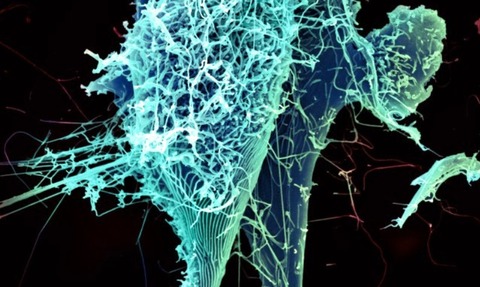World Bank pledges £120m to fight Ebola
5 Aug 2014

The latest death toll in the current West Africa Ebola epidemic now stands and more than 870.
The World Bank Group (WBG) has announced its intentions to pledge $200 million (£120m) in emergency funding to help Guinea, Liberia, and Sierra Leone contain the spread of the Ebola virus.
The news comes just days after the World Health Organization (WHO) announced a $100 million response plan with presidents of West African nations impacted by the Ebola virus outbreak. The $100 million plan forms part of an intensified campaign to help bring the outbreak under control.
“I am very worried that many more lives are at risk unless we can stop this Ebola epidemic
WBG president Jim Yong Kim
WBG president Jim Yong Kim said the bank’s financing commitment was in response to a call from both the three African countries hardest-hit by Ebola and WHO for immediate assistance to contain the outbreak.
“I am very worried that many more lives are at risk unless we can stop this Ebola epidemic in its tracks,” Kim said.
“I have been monitoring its deadly impact around the clock and am deeply saddened at how it has ravaged health workers, families and communities, disrupted normal life, and has led to a breakdown of already weak health systems in the three countries.”
The Ebola virus, which first appeared in 1976 in two simultaneous outbreaks in Nzara, Sudan, and in Yambuku, Democratic Republic of Congo, causes fever and haemorraging, and can often be fatal.
It is commonly accepted that the virus is transmitted to humans via wild animals, with fruit bats considered the natural host of the virus.
Yesterday, The Guardian newspaper reported that despite warnings from health workers, some villagers in Guinea are continuing to eat the meat from fruits bats.
Cases of Ebola can lead to a fatality rate of up to 90% with no vaccine available to either humans or animals.
However, news outlet CNN reported this morning that two American missionary workers who contracted Ebola in Liberia during July were successfully treated with an experimental drug.
According to the CNN report, biopharmaceutical firm Mapp Biopharmaceutical administered a drug known as ZMapp to treat the disease, after encouraging results in early trials within mice.
A statement on Mapp Biopharmaceutical’s website says, “ZMapp was first identified as a drug candidate in January 2014 and has not yet been evaluated for safety in humans. As such, very little of the drug is currently available”.
A study, published in the journal Science Translational Medicine during October last year, reported on a ’promising treatment’ against the Ebola virus.
Tested on primates, the treatment was successful in 50% of cases when administered two days after infection.
To extend the treatment window and improve protection, the researchers combined the treatment, known as ZMAb, with adenovirus-vectored interferon-? (Ad-IFN) and evaluated efficacy in Ebola-infected non-human primates.
In that instance, 75% and 100% of cynomolgus and rhesus macaques survived, respectively, when treatment was initiated after detection of viremia at three days after infection.
Unfortunately, as The Conversation reported in April, pharmaceutical companies are first and foremost businesses and therefore only market so-called ’wonder drugs’ as long as they remain profitable.
Though researchers have the potential to design and test antiviral drugs, often several factors, including monetary gain, means that the relatively sporadic nature of Ebola outbreaks can often mean a potentially life-saving cure never leaves the laboratory, and is therefore never exposed to the market.

